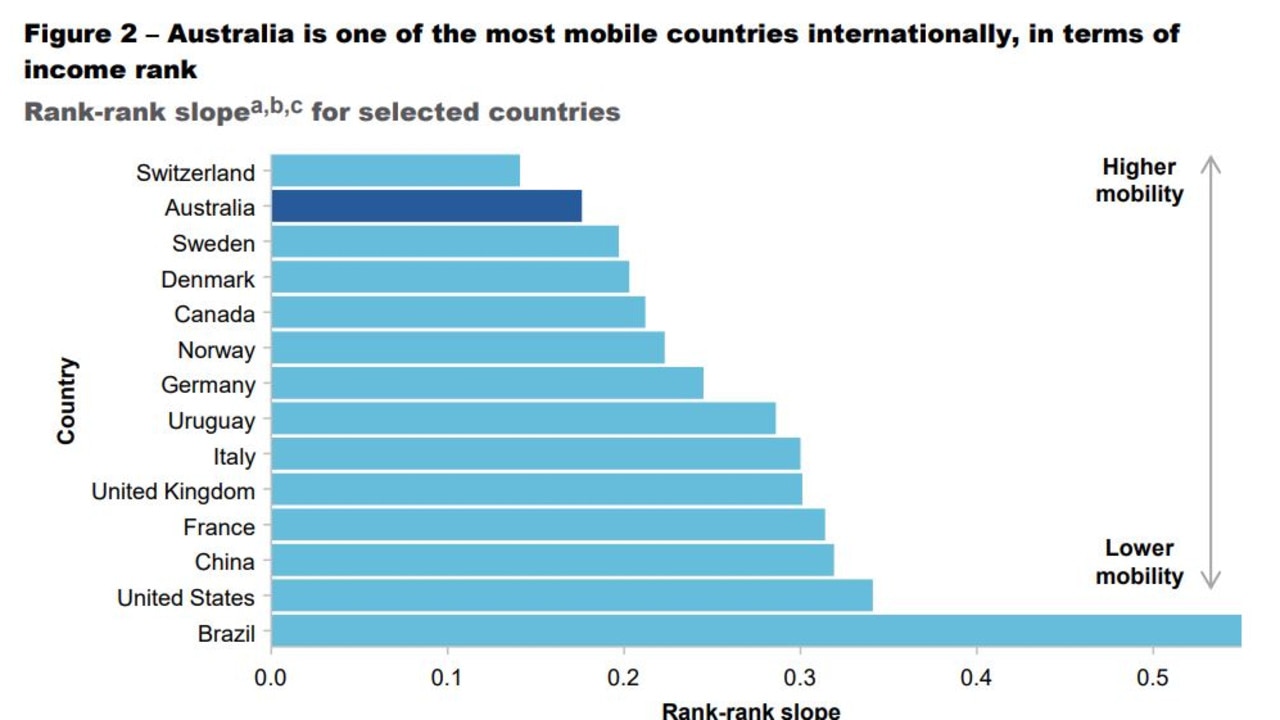Most ‘Xennials’ better off than their parents, report finds
Aussies born between the late 1970s to early 1980s better off than their parents were at a similar age, a new report has found.
Australia is the land of the fair go for many, with most Aussies born between the late 1970s and the early 1980s better off than their parents were at a similar age, a new report has found.
The Productivity Commission’s report on economic mobility in Australia found two-thirds of “Xennials” – those born in 1976 and 1982, on the cusp of the Millennial and Gen X divide – were earning more than their parents did at a similar age.
Productivity Commission chair Danielle Wood said Xennials, who are currently in their forties, have a higher degree of income mobility compared to their parents.
“Whether their parents were low income or middle income or high income, it doesn’t end up having much bearing on where they end up in the income distribution themselves,” Ms Wood told news.com.au
Overall, the report found Australia’s overall levels of economic mobility are high compared to others around the world, ranking above the US and some Nordic countries.
“We certainly know how to deliver a fair go,” said Ms Wood.
“We are a country where your talent and hard work count for more than who your parents are, in terms of your outcomes.”

Ms Wood said a key reason those born in the 1976-1982 cohort have earned more than the generation prior is because they enjoyed a period of economic growth.
“They have gone into the workforce, and they’ve been able to see their incomes grow faster than those that went before.”
Education also plays a part in how much Aussies earn.
The report found that on average, people with a bachelor’s degree or higher earned 23 per cent more than someone who completed year 12.
Gender gap
While most Aussies born between 1976 and 1982 earn higher incomes than their parents, gender is an important factor.
The report found that 56 per cent of women in this group earn higher incomes than their parents, compared to the vast majority of men 77 per cent.
When comparing incomes to the opposite gender, the data found 86 per cent of men earn more than their mothers, while only 37 per cent of women earn more than their fathers.
Ms Wood said it’s further evidence the gender pay gap remains a “persistent challenge in Australian society”.
“Women are more likely to work part time, they’re more likely to have more time out of the workforce for caring responsibilities. When they do work, they earn lower average wages, they’re more likely to be in lower paid jobs in industries. All of that means they are less likely to out earn their parents than the men are.”

Slower income growth for younger Aussies
While those in their forties are earning more than their parents, the news isn’t as positive for younger Aussies.
Data found young Aussies have experienced almost no growth in incomes between the ages of 25–30 compared Aussies born in the 1980s.
The report noted more years of research are needed, “but the lack of income growth for those born in the 1990s indicates the trend that each generation earned more than the previous may have stalled.”
“It’s the first cohort where we haven’t seen that progress in terms of income growth,” said Ms Wood. “The reason for that is because they’ve hit the workforce during a period where wages and incomes are more subdued overall.”
“Since Covid, we’ve seen real incomes go backwards in this country, particularly because of high inflation, and that’s making it more challenging for the younger people that are starting out in their careers.”
“We really want each generation to be to be building on the progress and thriving, so we’re probably not taking advantage of the skills and talents in that generation sufficiently.”

Poverty cycle
While the report found most of the population has a high degree of mobility, those at the extreme ends of the spectrum – with the most and least wealth – have the lowest level of mobility.
“The extreme ends of the income distribution seem to be more sticky. Those from high-income families are more likely to end up high-income themselves. And at the other end of the spectrum, it looks like some families or households get trapped in poverty.”
“We see this sort of stickiness across generations. So if your parents receive some form of income support, like a job seeker payment, when you’re younger, you’re more than twice as likely to be receiving that payment when you get to working age compared to other groups in the population.”
The report found that one in seven Australians experienced poverty in 2022 – the highest level since 2001, with renters, people from migrant backgrounds who do not speak English at home and single parents among the groups most at risk of poverty.
Moving forward, Ms Wood said it’s important policymakers help address poverty cycles, through measures such as rental assistance and income support.
She said policymakers also need to address the challenges for the next generation.
“We need to kickstart economic growth and need to have a strong growth agenda, because ultimately, income growth is going to be what helps ensure that we hopefully move back to a world where those younger Australians do out earn their parents.”
Originally published as Most ‘Xennials’ better off than their parents, report finds





